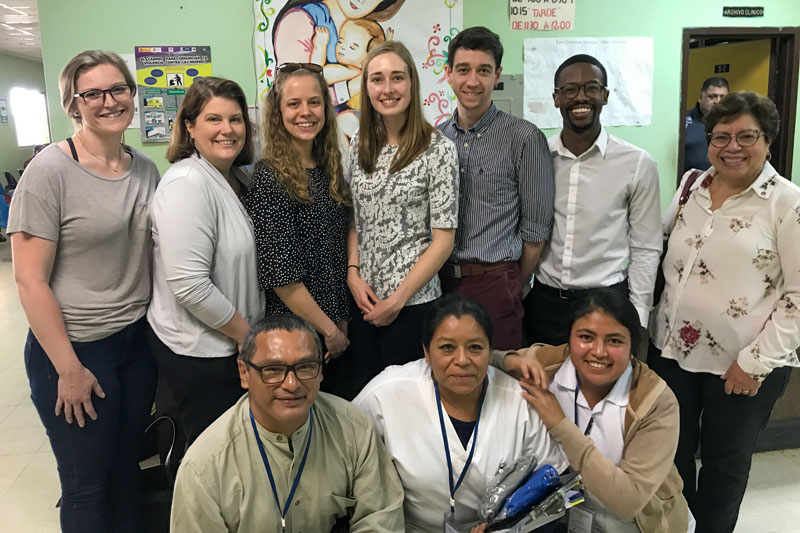 In March 2020, the Ohio State team conducted a site visit during which they met with stakeholders and visited one of the study sites in Cobán, Guatemala.
In March 2020, the Ohio State team conducted a site visit during which they met with stakeholders and visited one of the study sites in Cobán, Guatemala.
Mycotoxin contamination leads to about a quarter of the world’s food being wasted, threatening food security and causing billions of dollars in economic losses each year. Consumption of food contaminated with high levels of mycotoxins, such as aflatoxins, has been associated with serious acute and long-term health outcomes such as cancer, stunting and wasting.
Mycotoxin contamination is a significant problem in low- and middle-income countries (LMICs), which frequently have hot, humid climates that promote mycotoxin growth. Previous research has demonstrated potentially high exposure to mycotoxins in Guatemala.
Mishandling of crops such as maize during pre- and post-harvest has been associated with mycotoxin contamination. Studies have shown variability in maize handling practices in Guatemala but were limited in that they did not test food samples or examined a small study population.
The overarching goal of this project, which is to take place from January 2021-January 2022, is to estimate aflatoxin exposure in Guatemala to inform decision-making by governmental and nongovernmental organizations around control of aflatoxin contamination in the food supply chain. This project will address this research gap by conducting a cross-sectional survey of women maize sellers.
This project will address information gaps around exposure to mycotoxins by conducting a cross-sectional survey of women maize sellers in the eight regions in Guatemala. Maize, tortilla and urine samples will be collected and analyzed for aflatoxin content using enzyme-linked immunosorbent assays. A questionnaire will be administered to collect data on maize handling practices used to make the tortillas. Risk factors for tortilla contamination with aflatoxins with be identified through logistic regression analysis. Results of this work will inform the development and implementation of supply chain management practices that mitigate mycotoxin production, reduce food waste and economic loss, and promote food security.
Demonstrating a relationship between maize handling and processing practices, contamination of mycotoxins in maize and tortillas may lead to changes within food production, storage and market systems in LMICs as well as improved messaging for individuals around dietary choices. This project is expected to provide important information on the levels of mycotoxins in maize consumed by women tortilla makers which, in turn, could be used to inform regulatory decision making around the implementation of control measures for mycotoxins. This project encourages growth of meaningful partnerships between Ohio State and Guatemala to catalyze engaged research, teaching and programs that improve food safety while promoting healthy dietary choices.
The project is led by Barbara Kowalcyk, PhD, MA, assistant professor, Department of Food Science and Technology, College of Food, Agricultural, and Environmental Sciences, The Ohio State University, and Olga Torres, MS, director, Laboratorio Diagnóstico Molecular, Centro De Investigación en Nutrición y Salud, Guatemala.